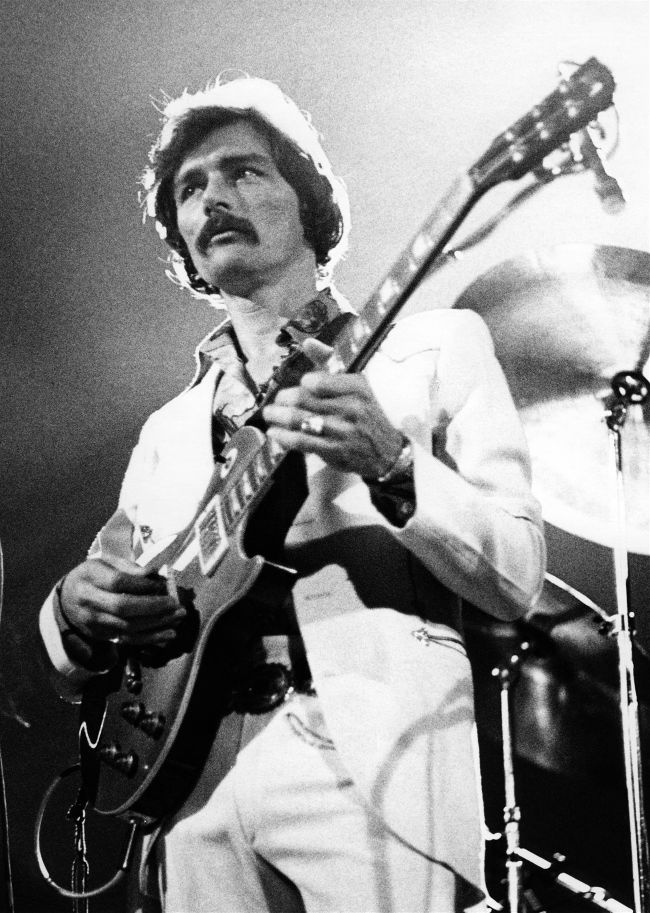Ramblin’ Man
The Allman Brothers Band’s guitar great Dickey Betts left us on April 18.

REAL GONE Southern main line: blue sky thinker Dickey Betts on-stage, 1975;
DICKEY BETTS’ fine songwriting and trailblazing twin-lead guitar work with Duane Allman secured his prime berth in the Southern rock firmament, but he made his mark elsewhere, too. Bob Dylan exhorted us to listen to Betts’ music in 2020’s Murder Most Foul, and in Britain even car enthusiasts with little affinity with down-home ’70s rusticity would recognise Jessica, the Betts-penned composition BBC TV show Top Gearadopted as its long-standing themetune. A buoyant instrumental Betts hatched on The Allman Brothers Band’s communal farm in Juliette, Georgia in 1972, Jessica was named for his then infant daughter, but had infinite reach. In 2006, The Wall Street Journal called it “a true national heirloom.”
When Billy Crudup played Russell Hammond of fictional band Stillwater in Cameron Crowe’s film Almost Famous, moreover, it was Dickey Betts that Crowe had in mind as Crudup’s model. The writer/ director cited Betts’ air of “possible danger and playful recklessness behind his eyes”, and acknowledged that “Crudup’s look, and much more, is a tribute to Dickey.”
Fiction aside, The Allman Brothers Band created the mythos of Southern rock rebellion and tragedy through living it. With his horseshoe moustache and Stetson, later a necklace of alligator teeth, the hotel-trashing, cop-punching Betts was at the epicentre of it all. Like his bandmates, he had a magic mushroom tattooed on his leg as a symbol of their decadent brotherhood.
Betts was, however, never given to cliché when playing. Dreams, from The Allman Brothers Band’s self-titled 1969 debut was a swinging waltz blues in 12/8 time, with Duane and Dickey pushing forward as if on some existential quest. Elsewhere, Betts’ exquisite instrumental In Memory Of Elizabeth Reed, from 1970’s Idlewild South, was his tribute to Miles Davis, its modal, sax-like solos reflecting the breadth and depth of Betts’ intergenre understanding.
He was born in West Palm Beach, Florida on December 12, 1943. His father Harold was a carpenter who played fiddle; his mother Sarah wrote poetry and played the cornet in a Salvation Army band. Betts grew up immersed in bluegrass, country and Western Swing music, played ukulele from the age of five, and quickly graduated to banjo, mandolin and guitar.
He and future Allman Brothers bassist Berry Oakley were in Cream-obsessed band Second Coming when Duane Allman – fresh from his session stint on Wilson Pickett’s February ’69 cover of The Beatles’ Hey Jude – slowly drew them into a six-piece band he had originally conceived of as a trio comprising himself, Oakley and Muscle Shoals session drummer Jai Johanny ‘Jaimoe’ Johanson.
“We all knew we were on to something special.”
DICKEY BETTS